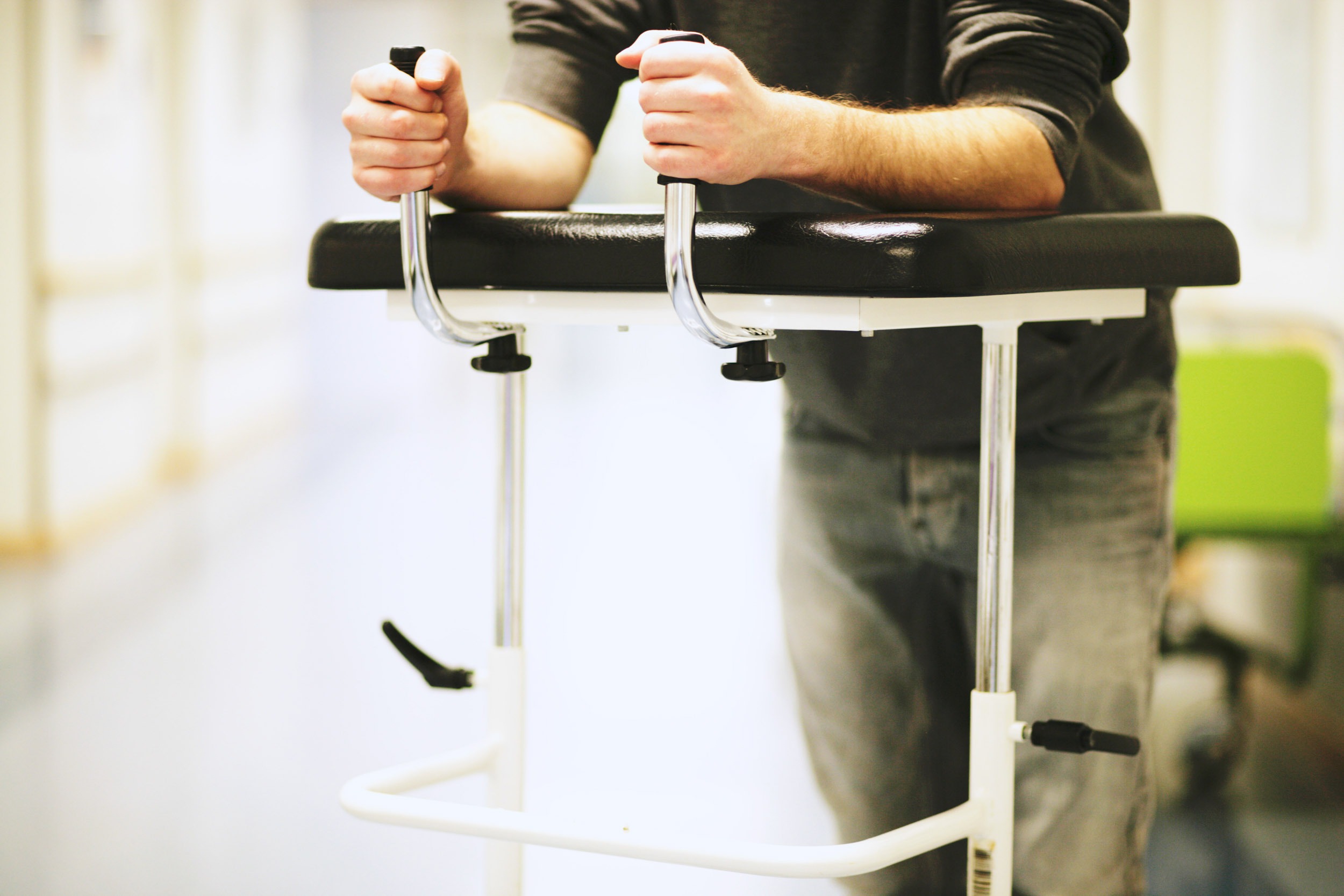
THERAPY-Magazin
Gait rehabilitation in Pakistan
Stroke-related mobility loss is a growing challenge in Pakistan. Learn how advanced technologies, multidisciplinary rehab and targeted investments can improve post-stroke gait rehabilitation.

Jakob Tiebel
Health Business Consultant
Effective approaches for improving walking ability after a stroke in Pakistan.
Strokes are a growing health challenge in Pakistan, with an estimated incidence of 250 per 100,000 inhabitants and 350,000 new cases every year. Loss of mobility after a stroke affects around 80% of stroke survivors, and the limited availability of advanced gait rehabilitation methods complicates the situation. One article highlights the need for multidisciplinary rehabilitation supported by innovative techniques, and discusses the advantages and disadvantages of conventional versus advanced training methods. Recommendations include the provision of budgets for training and equipment, as well as the establishment of specialised stroke rehabilitation centres in cooperation with industries.
The World Health Organisation considers stroke to be the second most common cause of death worldwide after ischaemic heart disease, and experts predict a further increase by 2030. In developing countries, demographic change has made stroke a pressing public health concern. In Pakistan, where comprehensive stroke statistics are lacking, the incidence is estimated at 250 cases per 100,000 inhabitants, resulting in around 350,000 new cases annually. The resulting loss of mobility poses considerable challenges for the healthcare system.
According to current evidence, post-stroke gait rehabilitation requires differentiated approaches.
According to current evidence, post-stroke gait rehabilitation requires differentiated approaches.
In Pakistan, gait rehabilitation after a stroke faces major challenges.

Multidisciplinary coordinated rehabilitation is crucial to reduce the health burden and increase independence rates. Current research shows that durable medical equipment such as electromechanical gait trainers can improve walking ability. Conventional therapies can be supplemented by innovative technologies such as virtual reality to increase their effectiveness.
When weighing up conventional versus advanced gait training methods, it is clear that conventional approaches are cost-effective and widely used. Advanced methods, on the other hand, require expensive equipment and specialised training, but offer more intensive rehabilitation and accurately controlled levels of intensity or support.
When weighing up conventional versus advanced gait training methods, it is clear that conventional approaches are cost-effective and widely used. Advanced methods, on the other hand, require expensive equipment and specialised training, but offer more intensive rehabilitation and accurately controlled levels of intensity or support.
The establishment of dedicated stroke rehabilitation centres with advanced equipment is recommended.
In Pakistan, gait rehabilitation after a stroke faces major challenges. Access to advanced methods is limited, mainly due to the high cost of equipment and a lack of trained staff.
Scientists who have recently studied the topic as part of this research recommend greater integration of evidence-based concepts into clinical practice. The government in Pakistan should provide budgets for training and equipment, while collaboration with industries could promote innovative solutions. The establishment of dedicated stroke rehabilitation centres with advanced equipment is recommended.
Scientists who have recently studied the topic as part of this research recommend greater integration of evidence-based concepts into clinical practice. The government in Pakistan should provide budgets for training and equipment, while collaboration with industries could promote innovative solutions. The establishment of dedicated stroke rehabilitation centres with advanced equipment is recommended.
Ambulante Rehabilitation
Fachkreise
Gait
Stationäre Rehabilitation
Therapy & Practice
THERAPY 2024-I
THERAPY Magazine

Jakob Tiebel
Health Business Consultant
Jakob Tiebel is OT and studied applied psychology with a focus on health economics. He has clinical expertise from his previous therapeutic work in neurorehabilitation. He conducts research and publishes on the theory-practice transfer in neurorehabilitation and is the owner of an agency for digital health marketing.
References:
- Khalid S, Malik AN, Siddiqi FA, Rathore FA. Overview of gait rehabilitation in stroke. J Pak Med Assoc. 2023 May;73(5):1142-1145. doi: 10.47391/JPMA.23-39. PMID: 37218257.
Related contents
Find related exciting contents in our media library.
Mehr laden
This is not what you are searching for? Knowledge
Meet our specialists.
Are you interested in our solutions? Schedule a meeting with a Consultant to talk through your strategy and understand how TEHRA-Trainer can help you to advance rehabilitation.
You need to load content from reCAPTCHA to submit the form. Please note that doing so will share data with third-party providers.
More InformationYou are currently viewing a placeholder content from Turnstile. To access the actual content, click the button below. Please note that doing so will share data with third-party providers.
More Information